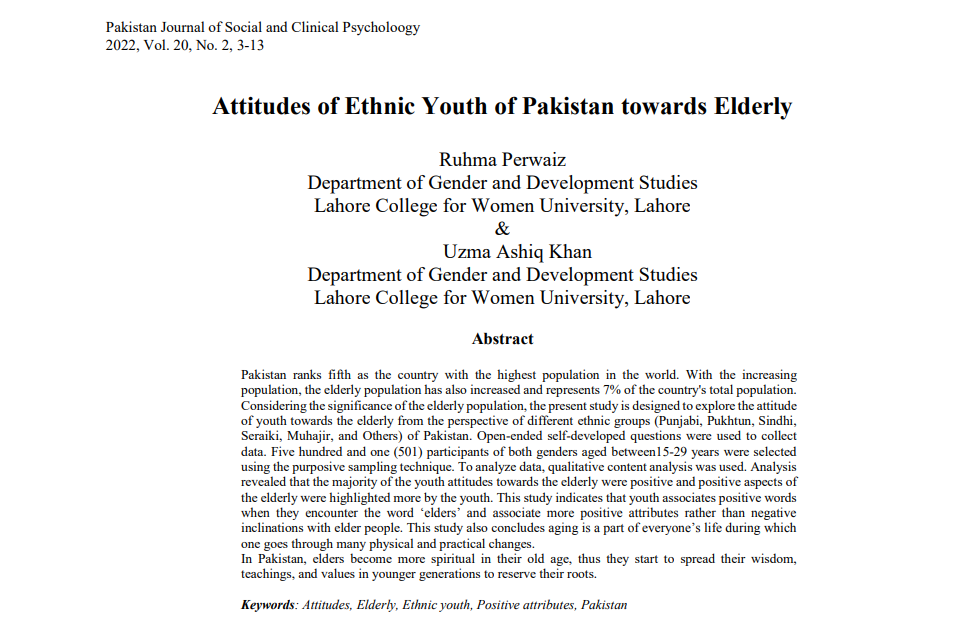- Version
- Download 2
- File Size 450.45 KB
- File Count 1
- Create Date December 11, 2024
- Last Updated January 24, 2026
Attitudes-towards-Elderly
Pakistan ranks fifth as the country with the highest population in the world. With the increasing
population, the elderly population has also increased and represents 7% of the country's total population.
Considering the significance of the elderly population, the present study is designed to explore the attitude
of youth towards the elderly from the perspective of different ethnic groups (Punjabi, Pukhtun, Sindhi,
Seraiki, Muhajir, and Others) of Pakistan. Open-ended self-developed questions were used to collect
data. Five hundred and one (501) participants of both genders aged between15-29 years were selected
using the purposive sampling technique. To analyze data, qualitative content analysis was used. Analysis
revealed that the majority of the youth attitudes towards the elderly were positive and positive aspects of
the elderly were highlighted more by the youth. This study indicates that youth associates positive words
when they encounter the word ‘elders’ and associate more positive attributes rather than negative
inclinations with elder people. This study also concludes aging is a part of everyone’s life during which
one goes through many physical and practical changes.
In Pakistan, elders become more spiritual in their old age, thus they start to spread their wisdom,
teachings, and values in younger generations to reserve their roots.


